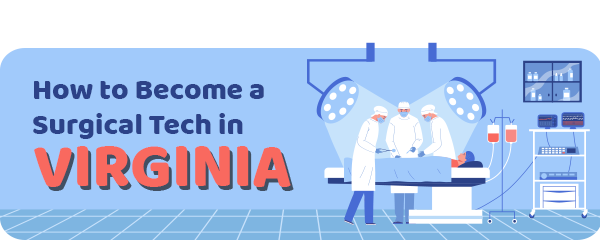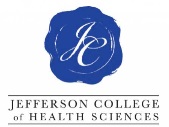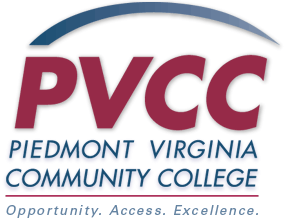In Virginia’s surgery rooms, one can find several personnel ready to act at any time, especially during an emergency.
This personnel is composed of:
- Surgeons
- Anesthesia specialist
- Surgical nurse
- Surgical technicians
These professionals start working together before the operation starts and stop after it ends.
There are a few other names for surgical techs, such as operation room (or OR) techs and scrub techs.
Article Table of Contents
Surgical Technologist Job Description and Duties
A surgical technologist has to complete several tasks during their shift at work.
These include:
- Preparing patients for surgery
- Transporting patients to and from the OR
- Preparing the OR with surgical equipment and supplies
- Monitoring the instrument count throughout surgery
- Handing the surgeon medical instruments
- Closing wounds and bandaging patients
Of course, this is not a complete list of all the duties of such a medical professional.
Surgical Technologist Training and Education
Surgical techs are not under the jurisdiction of any institution.
They do have the option to become registered with the state and will use the title “registered surgical technologist.”
This doesn’t mean it’s that easy to get such a job, so let’s learn more about the process!
Your journey to becoming a surgical tech starts by graduating from high school.
Obtaining a GED is an accepted alternative.
Your next step is to enroll in a training program designed for this occupation.
Remember that you need both education and clinical training for this job.
Several institutions offer such training across Virginia.
Their enrollment requirements are slightly different, but many have common classes:
- Microbiology,
- Pathophysiology,
- Pharmacology,
- Anatomy,
- Physiology,
- Medical terminology.
- CPR and/or BLS and/or AED
Bevill State Community College 
The program offered here covers the following topics, among others:
- Sterile processing,
- Infection control
- Sterilization,
- Instrumentation identification,
- Safety measures
The classes are organized in the college itself.
Those who want to study here must meet several prerequisites:
- Have a high school diploma or GED
- Pass the Accuplacer placement exam
- Complete their military service
- This is not mandatory but it will be taken into consideration
- Having previous medical-related experience, if possible
- Have health insurance
- Completing at least 120 clinical cases
- Complete at least 30 cases in General Surgery, with 20 of them in the first scrub role
The college is also asking for one of the following:
- Minimum composite score of 16 on the ACT
- Minimum Writing score of 4 on Accuplacer or ENG 101
- Minimum Math – Elementary Algebra score of 200 on Accuplacer or MTH 116
The course has a total of 29 credits.
Calhoun Community College 
At this college, The training program has a duration of around 2 years or 4 semesters.
Students will attend classroom, lab, and clinical instruction.
If you want to earn an AAS at this college, you’ll have to complete an additional 18 general education credit hours.
Candidates to the program must:
- Apply online
- Attend a program information session
- Complete a Manual Dexterity Exam
- Meet all the other college’s admission requirements
Jefferson College of Health Sciences 
The school provides a comprehensive program in surgical technology, allowing students to obtain a two-year associate degree.
Completed over five semesters, the coursework encompasses hands-on experience in an authentic medical clinic.
Graduates from Jefferson’s surgical technology program boast a 100 percent success rate in passing the NBSTSA certification exam.
Riverside College of Health Careers 
The school offers a surgical technology program leading to an associate degree.
Completed in a minimal timeframe of 18 months, the program covers fundamental subjects such as:
- Anatomy
- Physiology
- Medical instruction.
Plus, coursework includes in-depth learning about surgical procedures and patient care.
Piedmont Virginia Community College 
The school presents students with the option to pursue a certificate in surgical technology within three semesters.
The program entails completing 42 credit hours of coursework and preparing graduates to successfully pass the certification exam upon completion.
Applicants must attend a Health Sciences Information Session and fulfill other admission criteria.
| School Name | Address |
|---|---|
| Jefferson College of Health Sciences | 101 Elm Avenue Roanoke, Virginia, 24013 |
| Bevill State Community College | online |
| Piedmont Virginia Community College in Charlottesville | 501 College Drive Charlottesville, VA 22902 |
| Calhoun Community College | online |
| Riverside College of Health Careers | 316 Main St, Newport News, VA 23601 |
Registration and Certification as a Surgical Technologist
Registration and certification are 2 different things.
Let’s find out more about them!
Certification as a Surgical Technologist
The certifying body for this occupation in Virginia is the National Board of Surgical Technology and Surgical Assisting (NBSTSA).
It offers the Certified Surgical Technologist/Certified First Assistant credential through an exam.
The exam comprises 200 questions, requiring a minimum of 119 correct answers to pass.
The associated fees for taking the exam are $190 for Association of Surgical Technologists (AST) members and $290 for non-AST members.
The certification must be renewed every 4 years by attending 15 credits of continuing education courses every year.
Renewal also entails a fee payment.
Registration With the State as a Surgical Technologist
The registration with the State of Virginia for surgical technicians has just 1 requirement.
The requirement is to complete one of the following:
- Be currently certified through the National Board of Surgical Technology and Surgical Assisting (NBSTSA)
- Have completed surgical technology training in the armed forces
- Have worked as a surgical technologist before July 1, 2014
Usually, just completing the first prerequisite is enough.
To register, you have to pay the $75 fee and show the exam results.
Surgical Technologist Salary in Virginia
In Virginia, an OR tech can earn an average annual salary of about $51,100.
The following table shows the cities in Virginia where these professionals earn more.
Annual Salary Range:| Location | Avg. Annual Salary |
|---|---|
| Annandale | $57,300 |
| Vienna | $57,200 |
| Centreville | $57,100 |
| Amissville | $57,000 |
| Bentonville | $57,000 |
| Dogue | $55,400 |
| Zacata | $53,800 |
| Coles Point | $53,800 |
| Banco | $51,500 |
| Disputanta | $51,200 |
Regional Salary in Virginia
| Region | Employed | Avg. Annual Salary | Avg. Hourly Pay | Top 10% Annual Salary | Bottom 10% Annual Salary |
|---|---|---|---|---|---|
| Charlottesville, VA | 140 | $64,980 | $31.24 | $98,750 | $39,050 |
| Lynchburg, VA | 80 | $58,260 | $28.01 | $75,640 | $47,930 |
| Richmond, VA | 370 | $65,760 | $31.62 | $79,070 | $50,130 |
| Roanoke, VA | 180 | $63,820 | $30.68 | $76,320 | $47,590 |
| Virginia Beach-Norfolk-Newport News, VA-NC | 550 | $58,410 | $28.08 | $79,250 | $40,320 |
| Winchester, VA-WV | 50 | - NA - | - NA - | - NA - | - NA - |
* Employment conditions in your area may vary.
Frequently Asked Questions
What Skills Do I Need To Work As A Surgical Tech in Virginia?
Here are the most important skills this profession requires:
- Able to work as part of a team
- Detail-oriented
- Take direction
- Understanding medical terms
- Understanding medical methodology
- Good communication skills
Where Do Surgical Technologists from Virginia Find Work?
These technologists usually work in a hospital’s surgery wing.
Furthermore, these other places also hire such specialists:
- Children’s hospitals
- Cosmetic surgery centers
- Specialty clinics for surgical procedures
Can a Surgical Tech From Virginia Choose a Specialty?
YES!
Just like surgeons can choose to operate on a specific body part, so can these techs.
Here are the most commonly chosen surgery niches:
- General surgery,
- Ob/gyn,
- Urology,
- Plastics,
- Neurology
Read the full guide: How to Become a Surgical Technologist





